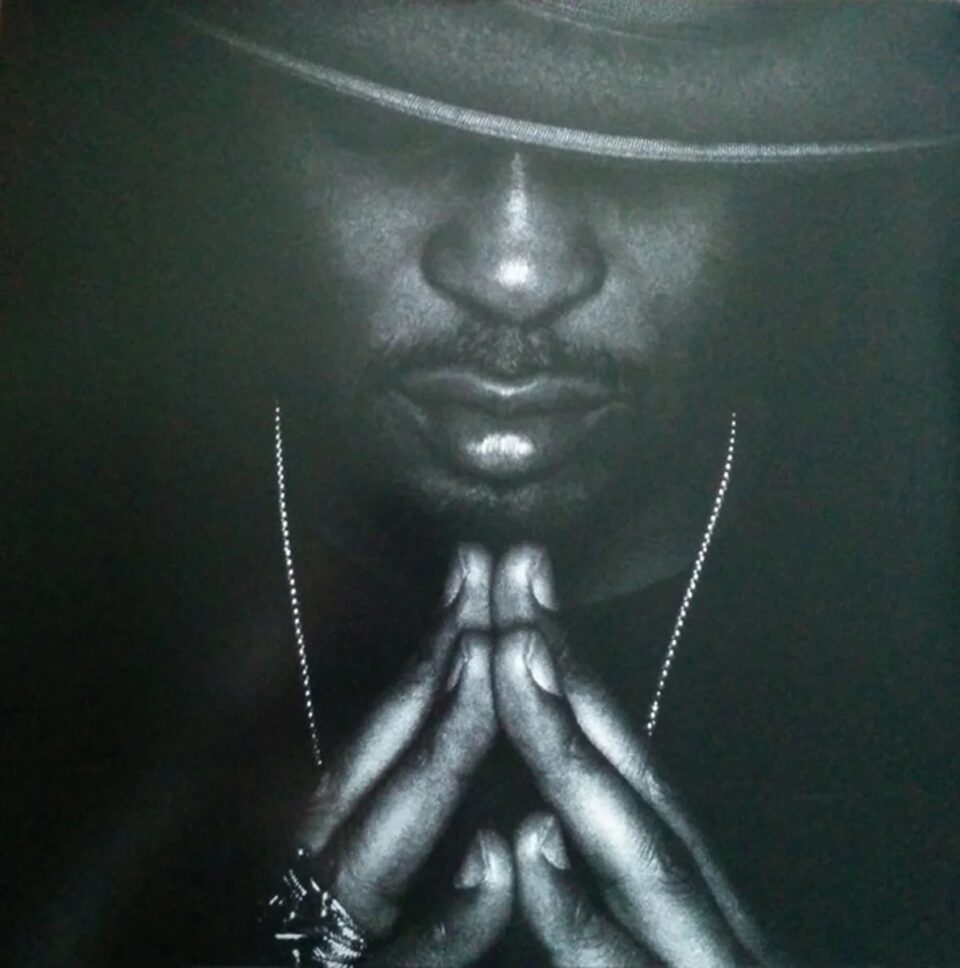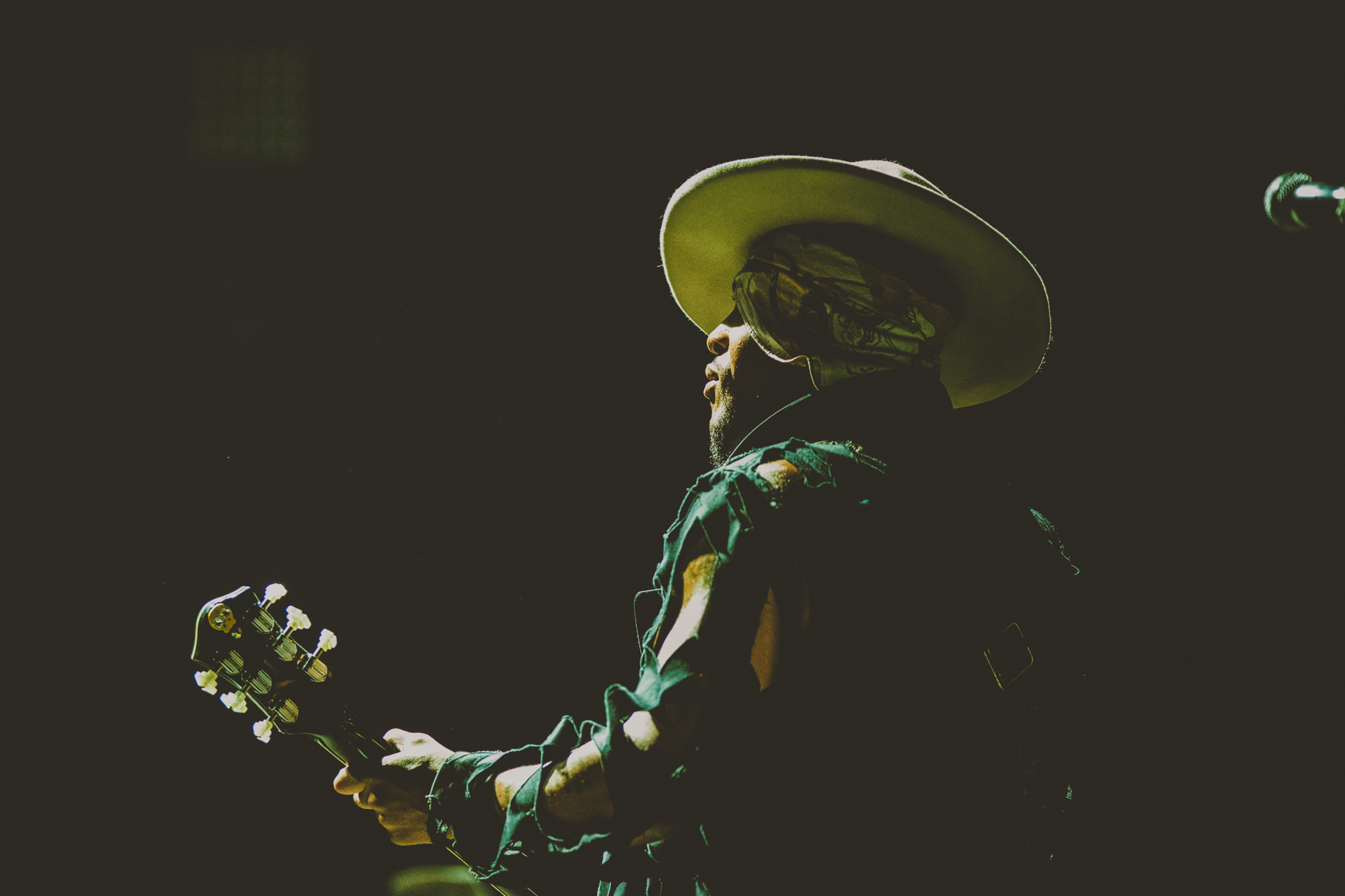In his recent documentary on the life and work of Sly Stone, Sly Lives!, Questlove spends a large chunk of his film’s real estate on another generational symbol of innovation, genre-jumbling, possession, and pained lyricism: D’Angelo. Enveloped by clouds of his own cigarette’s smoke, often averting his gaze from the camera by looking downward, D’Angelo talked unhappily about being turned into a commodity—often photographed shirtless, at the urging of his record label, as a smoldering sex object—when all he wanted to do was write, sing, and play guitar. Like Sly Stone, D’Angelo felt enslaved by the commercialization of his own inventive and industrious talents at their most naked.
“The shining star of our family has dimmed his light for us in this life,” reads a statement written this morning by D’Angelo’s family. “After a prolonged and courageous battle with cancer, we are heartbroken to announce that Michael D’Angelo Archer, known to his fans around the world as D’Angelo, has been called home, departing this life today, October 14th, 2025. We are saddened that he can only leave dear memories with his family, but we are eternally grateful for the legacy of extraordinarily moving music he leaves behind. We ask that you respect our privacy during this difficult time but invite you all join us in mourning his passing while also celebrating the gift of song that he has left for the world.”
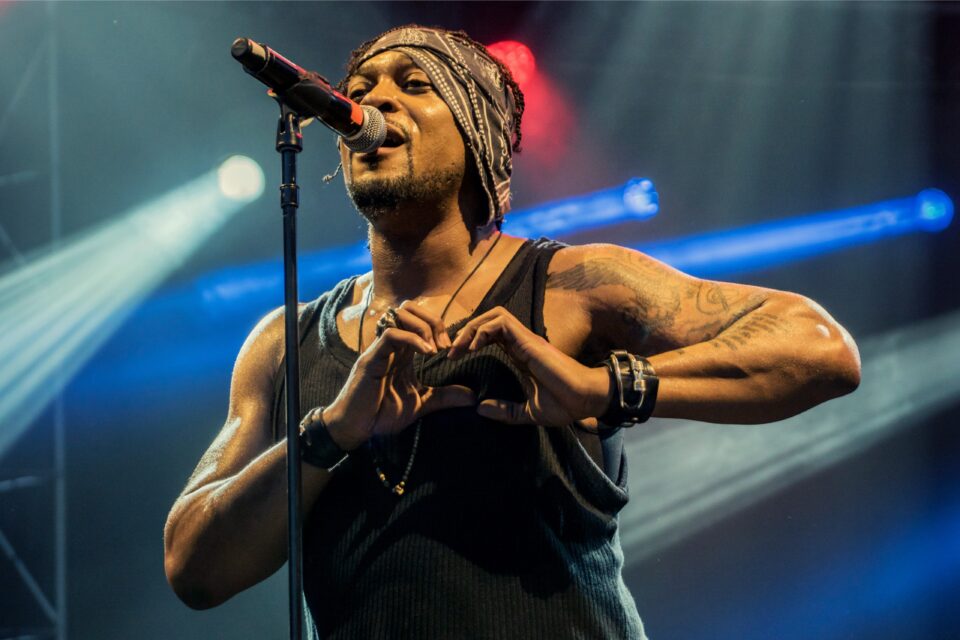
D’Angelo / photo by Joshua Mellin
The gift of song—call it “neo soul,” call it “Black rock,” call it “Drambuie-soaked funk,” whatever you want, as I truly doubt that he loved any genre-specified tag—is what seemingly mattered most to D’Angelo, even as others saw him as a sex symbol after the invasive “Untitled (How Does It Feel)” video turned him into something beyond music. The gift of collaboration, too, is clearly something that D’Angelo excelled at, as work with his closest associates (Questlove and the rest of their Soulquarians; players such as Jesse Johnson, Pino Palladino, and the late Roy Hargrove, who made up the nucleus of 2014’s Black Messiah) drew him away from his innate shyness, and farther from all the demons that could haunt a man put upon by success and guilt.
This one-man band born of the Pentecostal church all but birthed the concept of neo-soul on his 1995 debut album Brown Sugar, a record almost fully produced and performed by D’Angelo with its sets of yearning lyrics touching on sensuality and romance, and its quiet-storming music soaked in a still-fresh mix of analog and digital instrumentation and hip-hop pulsation. Playing as part of Lauryn Hill’s game-changing 1998 debut The Miseducation of Lauryn Hill as the singer and electric pianist on the song “Nothing Even Matters” didn’t hurt D’Angelo’s cred, either.
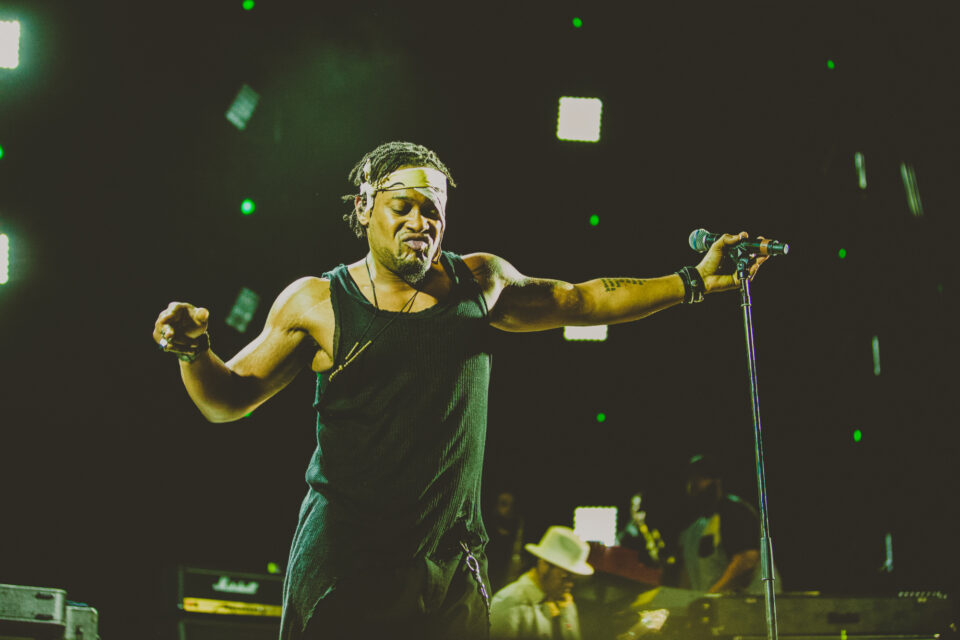
D’Angelo / photo by Rozette Rago
Maybe the idea of neo-soul got bastardized by critics and labels looking for an easy, uncomplicated tagline for R&B in the 21st century—or music that wasn’t exactly hip-hop, but still grooved deeply. No matter. By 2000, with the release of his bold-as-love second album Voodoo, D’Angelo was free from genre, free from structured and conventional melody, and free from a teenager’s concerns of sex and romance. Like Coltrane’s leap into A Love Supreme, Voodoo was mature and spiritual; it was more concerned about being a good, loving father to the son, to being a vessel of the Holy Ghost. You can’t categorize free.
But you could—if you were a record label or a hungry public—bottle its funk and functionality, play on its musky masculinity and turn its centerpiece figure into something he wasn’t or didn’t need to be. Such responsibility and demand is why D’Angelo turned inward, like Sly Stone, and withdrew into obsessions and addictions, noted latenesses and no-shows. No matter how great his success, it never appeared as if D’Angelo could find the peace that he craved.
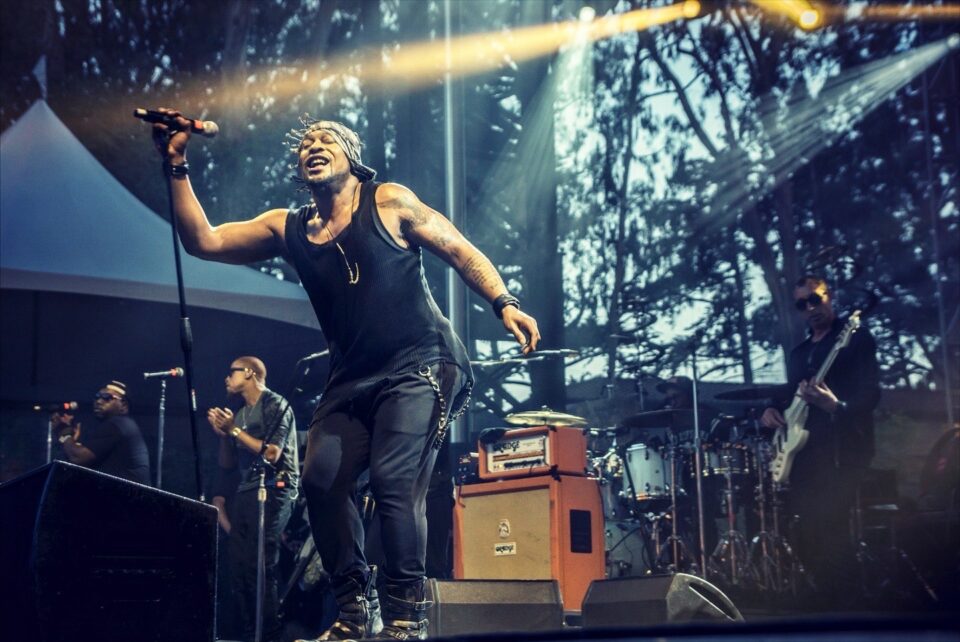
D’Angelo / photo by Joshua Mellin
Still, for all his late dates and missed appearances, when D’Angelo showed up and showed out—such as on the unexpected release of the emotional Black Messiah—he didn’t need to be forgiven. That such a powerfully uncompromising album didn’t have a follow-up is both the stuff of legend and an invitation to the unexpected. A new track in 2019’s “Unshaken,” a promised fourth album, a Roots Picnic date missed due to poor health earlier in 2025—what would come from D’Angelo would come when it was ready.
Until it’s not. And now the world gets to miss another great, lonely, dynamic genius whose invention is as big as his soul, and whose soul just wasn’t quite ready for these times. If ever a man deserved the phrase “rest in peace,” it is D’Angelo.
